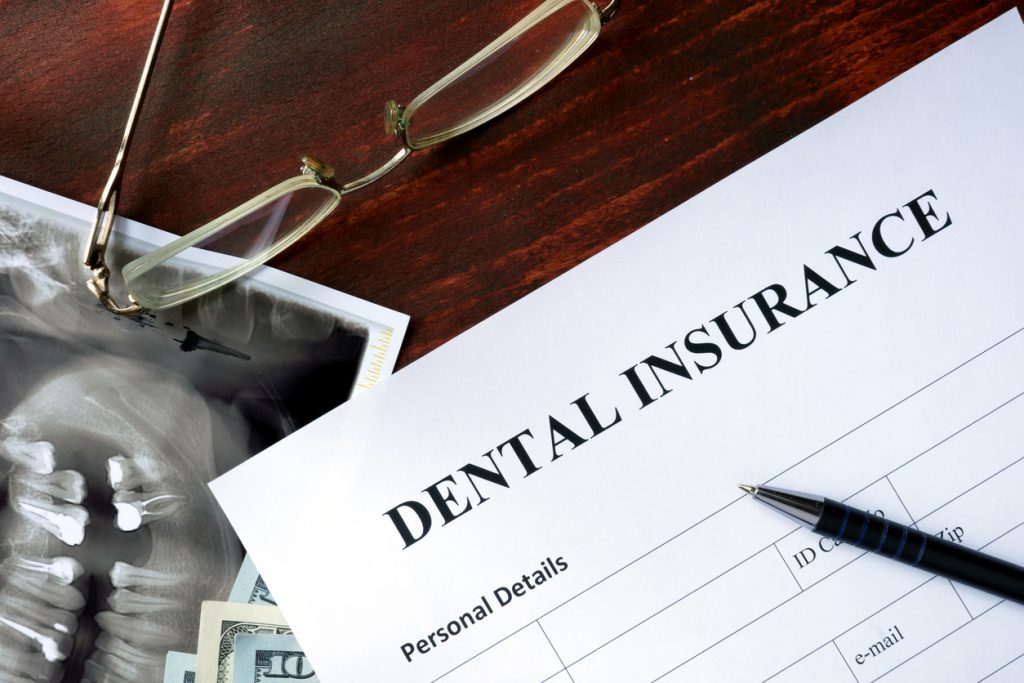You’ve decided that you’re going to get dental implants. You do some research online and realize that the cost is more than you can afford to pay on your own. You review your insurance coverage and find that dental implants are not covered. Now what?

Reasons Why Dental Implants May Not Be Covered by Insurance
Insurance coverage for dental implants can vary depending on the insurance provider and the specific policy. However, there are several reasons why dental implants may not be fully covered or covered at all:
Cosmetic nature: Dental implants are often considered cosmetic procedures, especially if they are replacing teeth that were lost due to non-medical reasons such as decay or trauma. Many dental insurance plans do not cover cosmetic procedures.
Pre-existing Conditions: Pre-existing conditions can have a significant impact on insurance coverage for dental implants. If tooth loss is deemed to be related to a pre-existing condition, such as periodontal disease, insurance companies may be less likely to cover the cost of implants. However, coverage decisions can vary depending on the insurer and the specific circumstances of the case.
Historical reasons: Dental insurance plans were traditionally designed to cover preventive and basic restorative services like cleanings, fillings, and extractions. Dental implants are a relatively newer and more advanced treatment option, so they may not have been included in older insurance plans.
Cost considerations: Dental implants can be expensive, as they involve surgery and the placement of a prosthetic tooth root. Insurance companies may be hesitant to cover them fully due to cost concerns.
Exclusions and limitations: Insurance policies often have exclusions and limitations on certain procedures or treatments. Dental implants may be explicitly excluded from coverage, or the coverage may be limited to certain circumstances, such as when they are necessary for medical reasons rather than purely cosmetic ones.
Alternative treatments: Insurance companies may prefer to cover less expensive alternative treatments for tooth replacement, such as dentures or bridges, which may be considered adequate for functional purposes.
Waiting Periods: Many dental insurance plans have waiting periods before certain procedures, including dental implants, become eligible for coverage. During this waiting period, individuals may need to maintain continuous coverage before being able to access benefits for implants. The length of the waiting period can vary depending on the insurance plan and the specific terms and conditions.
Network Providers and Referrals: Insurance plans may have networks of preferred providers, and coverage for dental implants may be influenced by whether the treatment is performed by an in-network or out-of-network provider. Additionally, some plans may require referrals or prior authorization for dental implant procedures, which can impact coverage eligibility.
It’s important for individuals to carefully review their dental insurance policy to understand what is covered and what is not, and to discuss treatment options and coverage with their periodontist or oral surgeon. Some insurance plans may offer partial coverage for dental implants or may cover certain aspects of the procedure, such as the initial consultation or the restoration placed on top of the implant.
Tips On How to Appeal The Insurance Decision
When facing a denied insurance claim for dental implants, individuals have the right to appeal the decision. Here’s a step-by-step guide on how to navigate the appeals process effectively:
- Review the Denial Letter: Carefully review the denial letter from your insurance provider. It should outline the reasons for the denial and any specific information or documentation required for an appeal.
- Understand Your Policy: Familiarize yourself with your dental insurance policy, paying close attention to the coverage details, exclusions, and any applicable terms and conditions. Understanding what is covered under your policy will help you craft a stronger appeal.
- Gather Supporting Documentation: Collect all relevant documentation to support your appeal, including dental records, treatment plans, x-rays, and any other medical documentation that demonstrates the necessity of dental implants for your oral health.
- Compose Your Appeal Letter: Write a clear and concise appeal letter addressing the reasons for the denial and providing evidence to support your claim. Be sure to include your name, policy number, date of the denial letter, and a brief summary of the treatment you’re appealing for.
- State Your Case Clearly: In your appeal letter, clearly explain why you believe dental implants should be covered under your policy. Provide detailed information about the medical necessity of the procedure, how it will improve your oral health and quality of life, and why alternative treatments are not suitable.
- Include Supporting Evidence: Attach copies of any relevant documents that support your case, such as letters from your dentist or oral surgeon, treatment plans, x-rays, and photos. Be sure to highlight any pertinent information that reinforces the necessity of dental implants for your specific situation.
- Submit Your Appeal: Send your appeal letter and supporting documentation to the address provided in the denial letter. Make sure to keep copies of all documents for your records and consider sending the appeal via certified mail with a return receipt to ensure it’s received.
- Follow-Up: After submitting your appeal, follow up with your insurance provider to confirm receipt and inquire about the status of your appeal. Be prepared to provide any additional information or documentation requested by the insurance company.
- Be Patient and Persistent: The appeals process can take time, so be patient and persistent in following up with your insurance provider. If your appeal is denied again, you may have further options for escalation, such as requesting an external review or seeking legal advice.
By following these steps and providing compelling evidence to support your case, you can increase the likelihood of a successful appeal and obtain coverage for dental implants under your insurance policy.
Option If Your Insurance Doesn’t Cover Dental Implants
Even if your insurance doesn’t cover dental implants entirely, there are several ways to manage the cost:
Dental Financing: Many dentists offer financing plans through third-party companies like CareCredit or Proceed Finance. These plans often have low or no interest for a set period, making them easier to manage.
Conventional or Personal Loans: Banks and credit unions provide traditional loan options. Although interest rates may be higher compared to dental financing, they serve as an alternative for individuals with favorable credit scores.
Flexible Spending Account (FSA) or Health Savings Account (HSA): Employees with FSAs or HSAs can utilize pre-tax funds to cover dental implant costs. However, contribution limits apply, potentially leaving a portion of the expenses uncovered.
Cash or Credit Card Payments: While not universally feasible, some individuals opt for upfront payment using cash or credit cards. This approach can be advantageous for those with lucrative credit card rewards or beneficial introductory offers.
Dental Grants: Several organizations offer dental grants that can reduce the cost of dental implants, though they likely won’t cover the entire expense. These can be from the American Dental Association Foundation or independent charities. Search online for “dental grants for low income adults” to find programs that might be applicable.
Dental Schools: Dental schools sometimes offer free or reduced-cost dental care, including implants, to patients in exchange for being treated by students under the supervision of licensed dentists. Look for dental schools in your area and inquire about any patient programs they offer.
Government Assistance Programs
Here are some resources that can help you find assistance:
- Dental Lifeline Network: This organization connects low-income individuals with free or reduced-cost dental care. They may be able to point you towards resources in your area [dental lifeline network ON dentallifeline.org]
- National Association of Free & Charitable Clinics: This association has a directory of free and charitable clinics that may offer dental services.
Remember, even if implants aren’t covered, these resources can help you find affordable options for essential dental care.
At Dr. David R. Scharf Periodontics and Dental Implants, we want to help every patient get the dental care they need, whether through us or some other means. We strive to be the best dental implants provider in Long Island and would love for you to visit us for a consultation. Call or schedule online today.

Call Dr. David Scharf, Periodontist in Long Island, NY, for a consultation.
